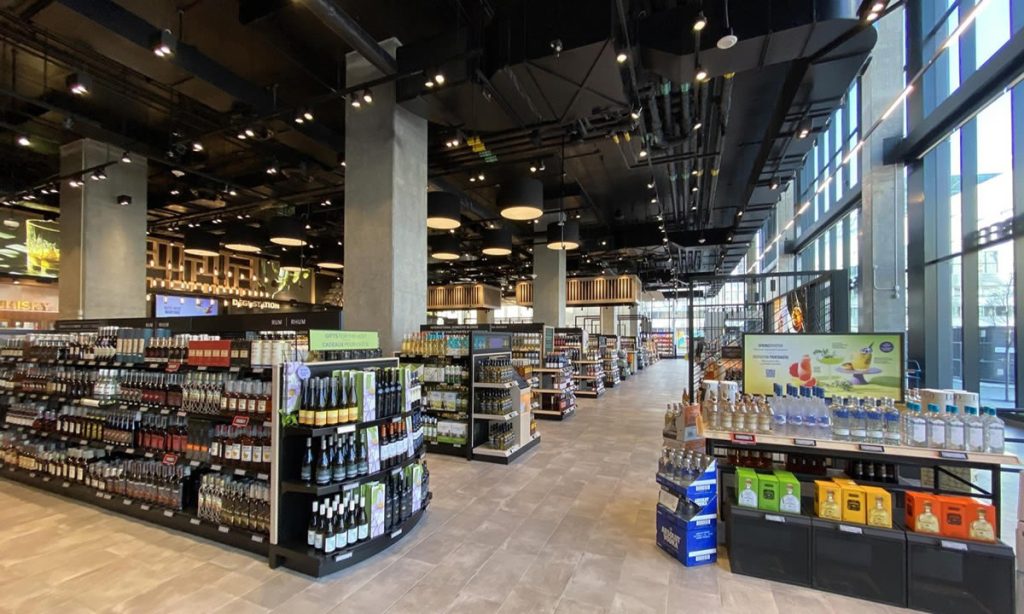
One of the flagship stores of LCBO in Toronto

One of the flagship stores of LCBO in Toronto
Posted: Monday, 25 December 2023 20:20

Earlier this month, Premier Doug Ford had announced a major overhaul in sales of alcohol and that Ontarians will be able to buy beer, wine, cider and seltzers at convenience stores, big box outlets, some gas stations and more supermarkets, starting in early 2026.
This would be reportedly the largest expansion of consumer choice and convenience since the end of prohibition almost 100 years ago, with the province estimating that lower-alcohol products will soon be available at 8,500 new locations. Ontario will become the third jurisdiction in Canada to offer beer in corner stores and the first to sell ready-to-drink cocktails in these locations.
“This new open marketplace is going to create new opportunities for local brewers, wineries and retailers. It’s going to support local jobs, and most importantly it’s going to give people more choice and convenience,” Ford said during a news conference at a Toronto convenience store on Dec. 13.
We’ve got to treat our people of Ontario like adults, and that’s what we’re doing, he had said- unlike in India where adults under 21 years of age can generally not buy liquor in most States; in Delhi the legal age is even higher at 25.
The government said it will boost social responsibility and public health efforts by spending C$10 million over the next five years to address concerns about the expansion.
However, a coalition of three mental health groups including the Canadian Mental Health Association (CMHA), Addictions and Mental Health Ontario and Children’s Mental Health Ontario, has urged the government, a day after the announcement, to exercise caution. Increasing the number of alcohol retail outlets has been shown to increase negative health outcomes including violence, injuries, alcohol-related crashes and suicides, the coalition said, urging the province to ensure that community mental health and addictions supports are considered as part of the expansion.
Dr. Susan Farrell, CEO of the CMHA’s Ottawa branch, said these are common concerns among advocates. “The common perspective that we have is that alcohol policies really need to be based on the health and well-being of communities and not just as a chance to increase revenue. I think the issue is to really focus on an investment for alcohol-related harms, and not increase it by increasing access.’
The Harm Paradox
Professor Tim Stockwell, of the University of Victoria, says the rapid privatization of alcohol sales in the early 2000s led to an increase in consumption, followed by an increase in alcohol-related deaths and hospitalizations. Those harmful effects were felt disproportionately in lower-income areas. Termed as the Harm Paradox, it claims that people that are less well-off are more vulnerable to the harm that alcohol can do because there are several other risk factors there.”
He also claims that with thousands of new retailers competing for alcohol sales, prices will drop, and consumption will rise, especially in poorer areas. The number of alcohol-related deaths in Ontario may also increase. Limiting access and increasing the minimum price of alcohol will have the opposite effect, he said, and will save taxpayers money in the long run.
Ontario is controlled currently by the Liquor Control Board of Ontario (LCBO). The retail sale of alcohol is controlled by this Monopoly and the stores run by it. Prices are fixed by LCBO and may not be reduced-a situation similar to that of Delhi in the current excise policy.
“Folks, we all have busy lives, so just imagine on a Friday night in December, instead of being stuck in a long lineup at the LCBO, you’ll be able to pop into your local convenience store before heading out to the holiday party,” says Ford.
The retail policies are often controversial in many parts of the world where they are controlled. Netizens of Ontario can look forward to a much easier approach to buying liquor at cheaper prices, come January 2026.
Subhash Arora
